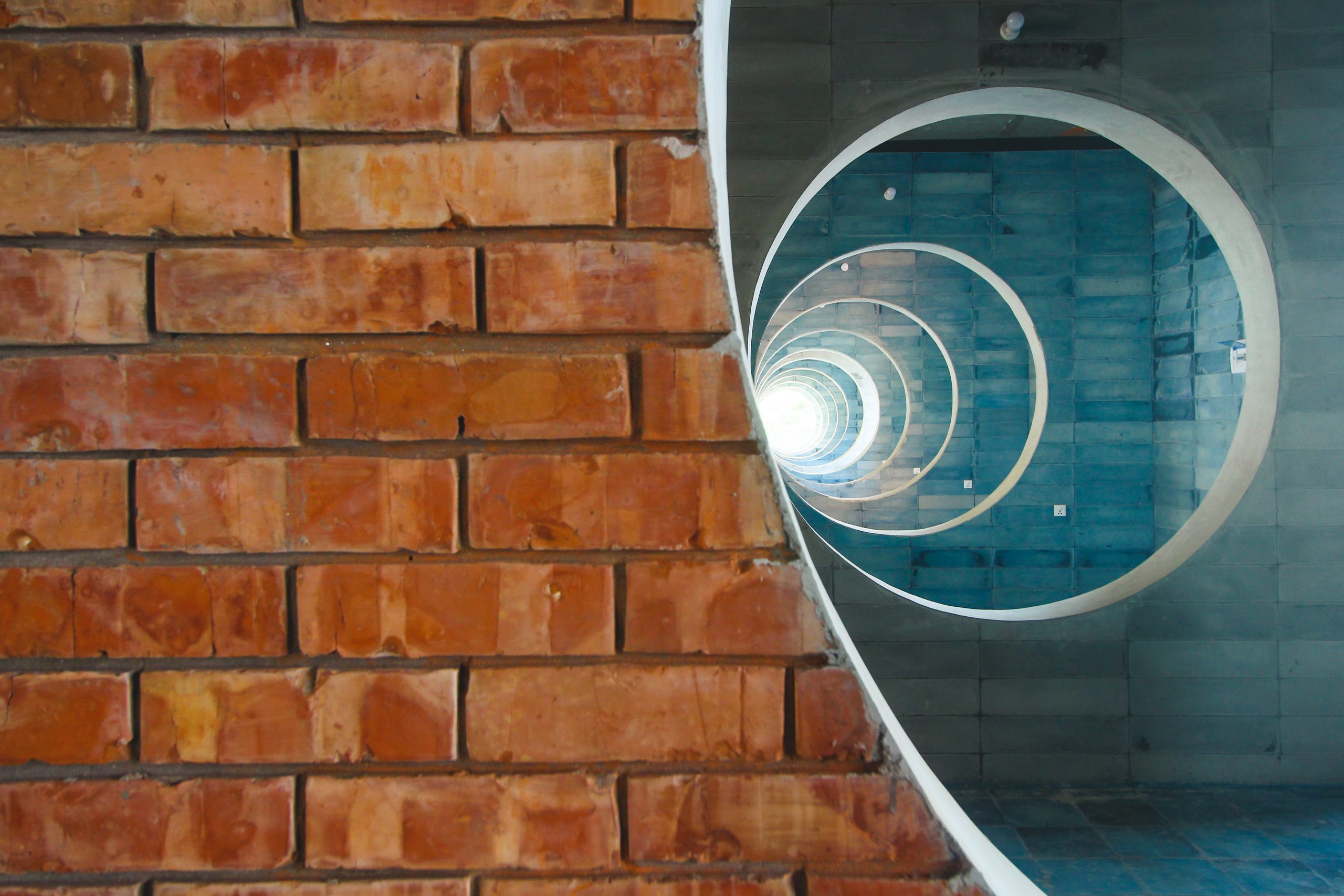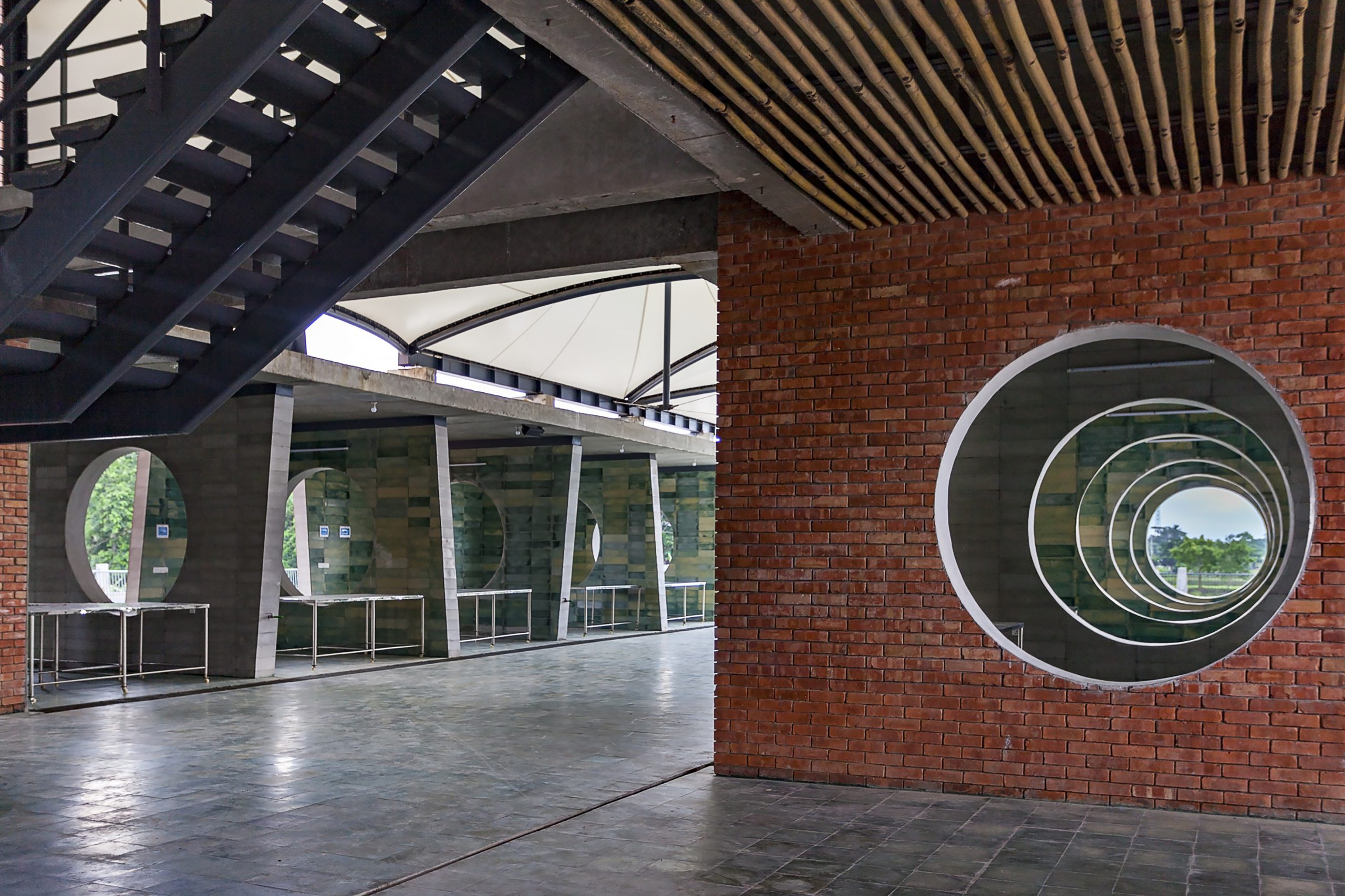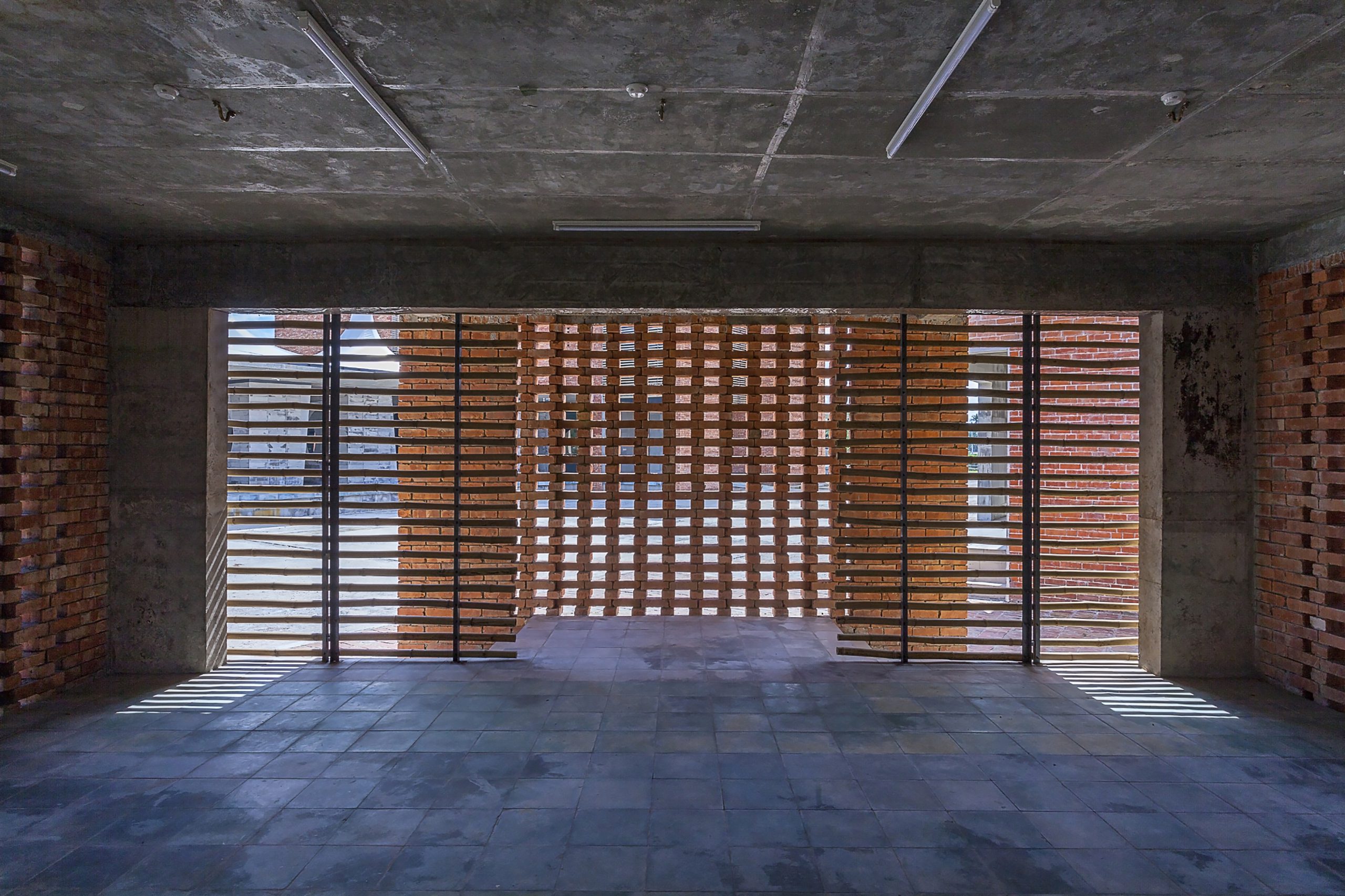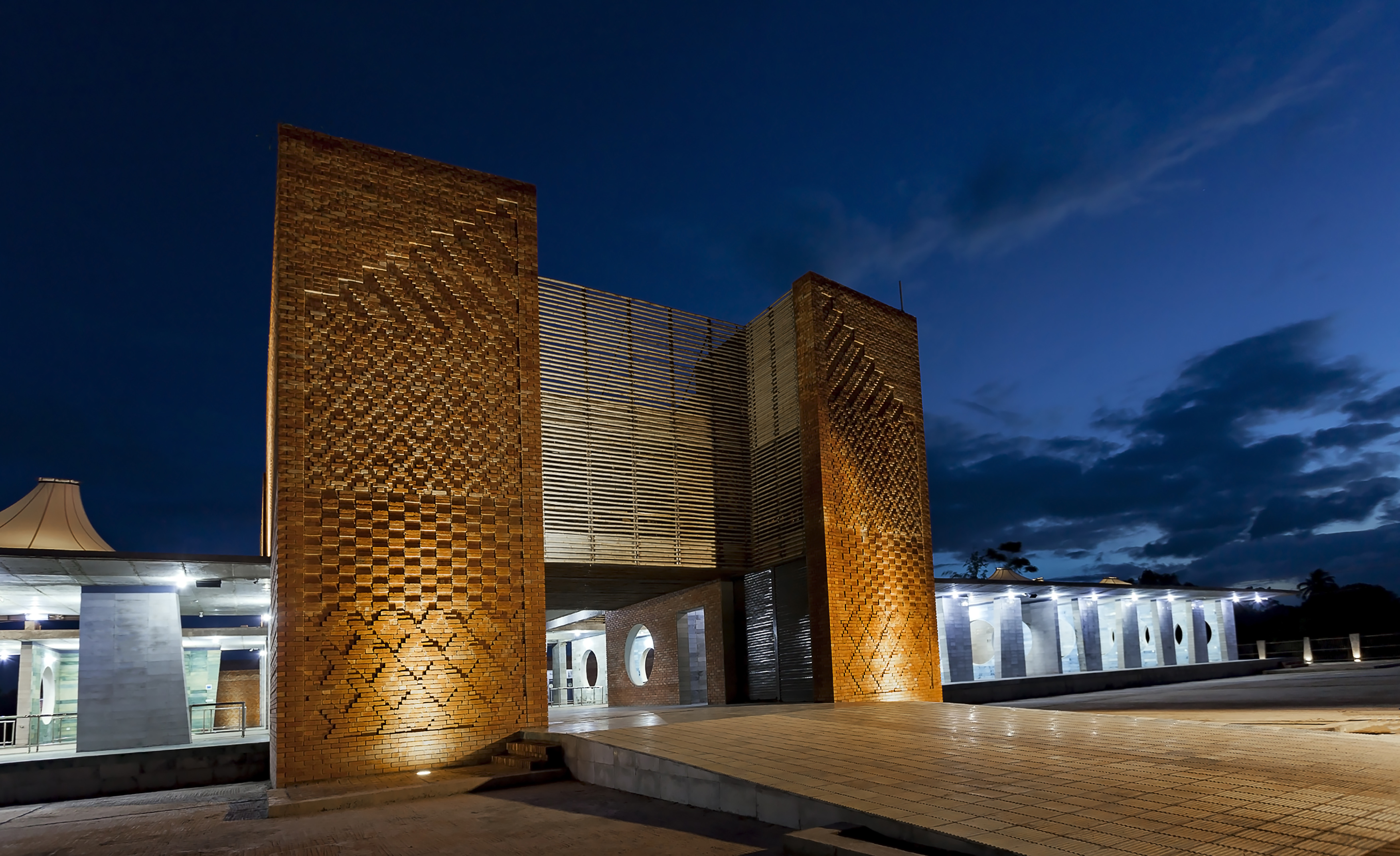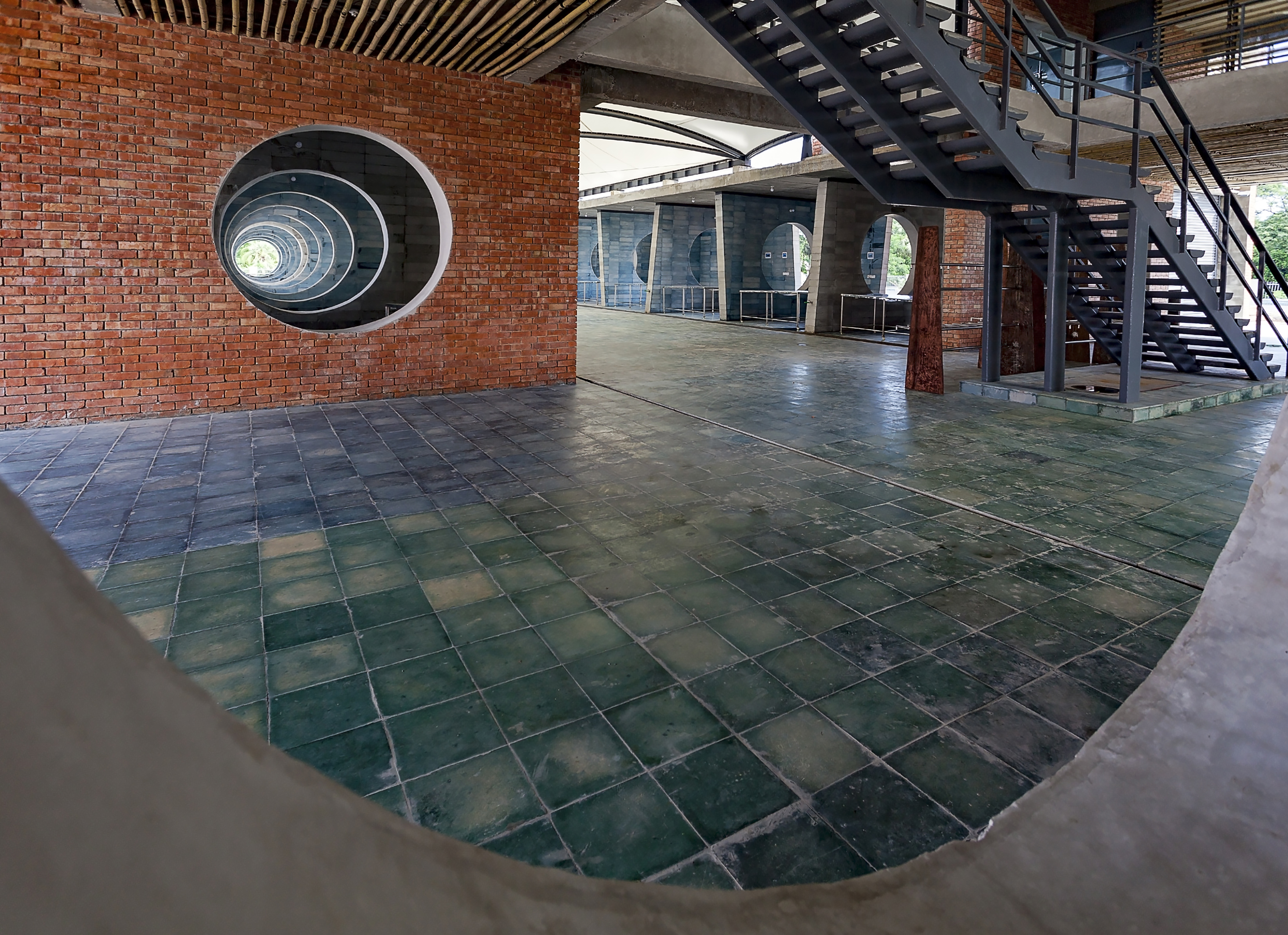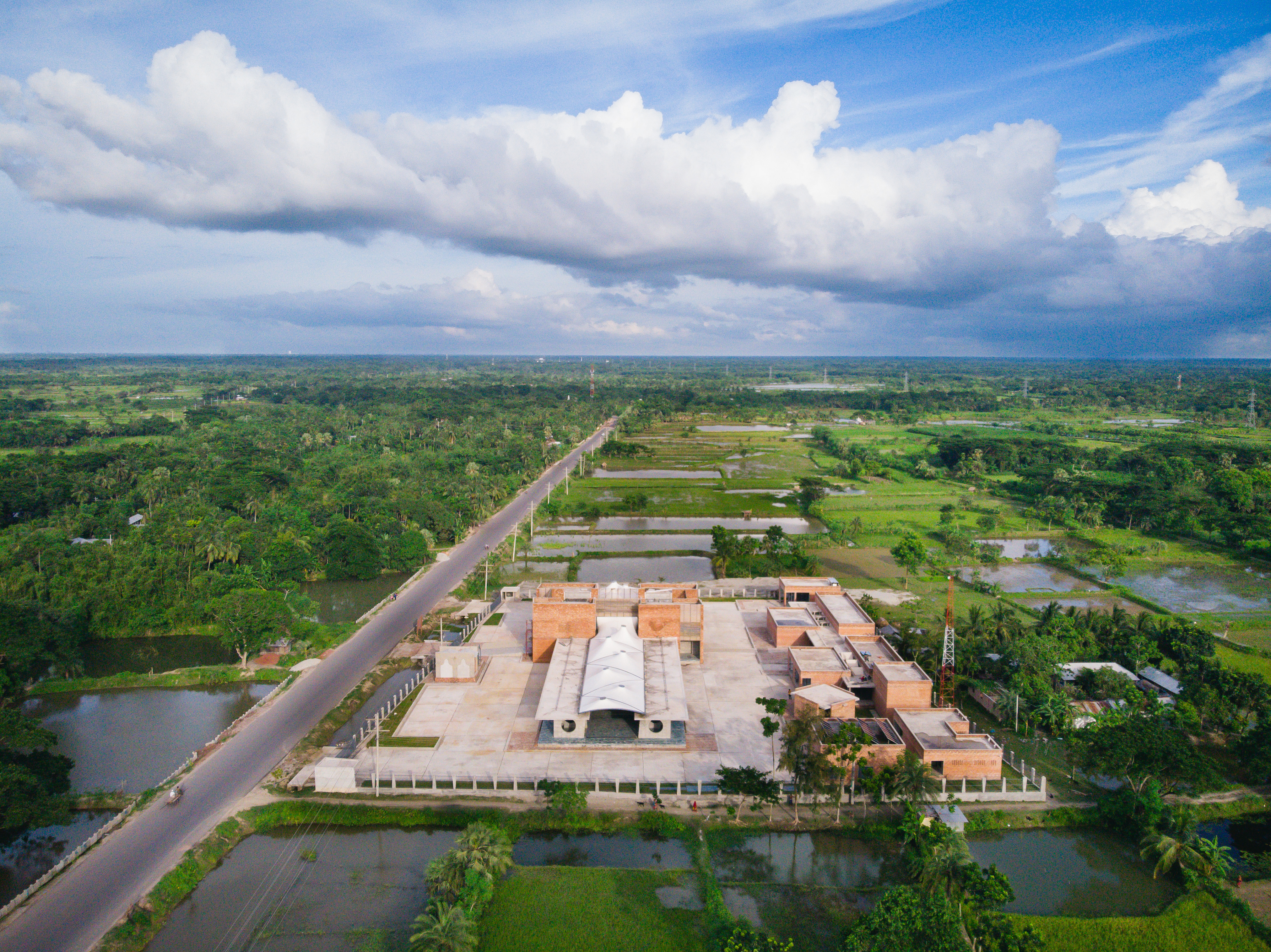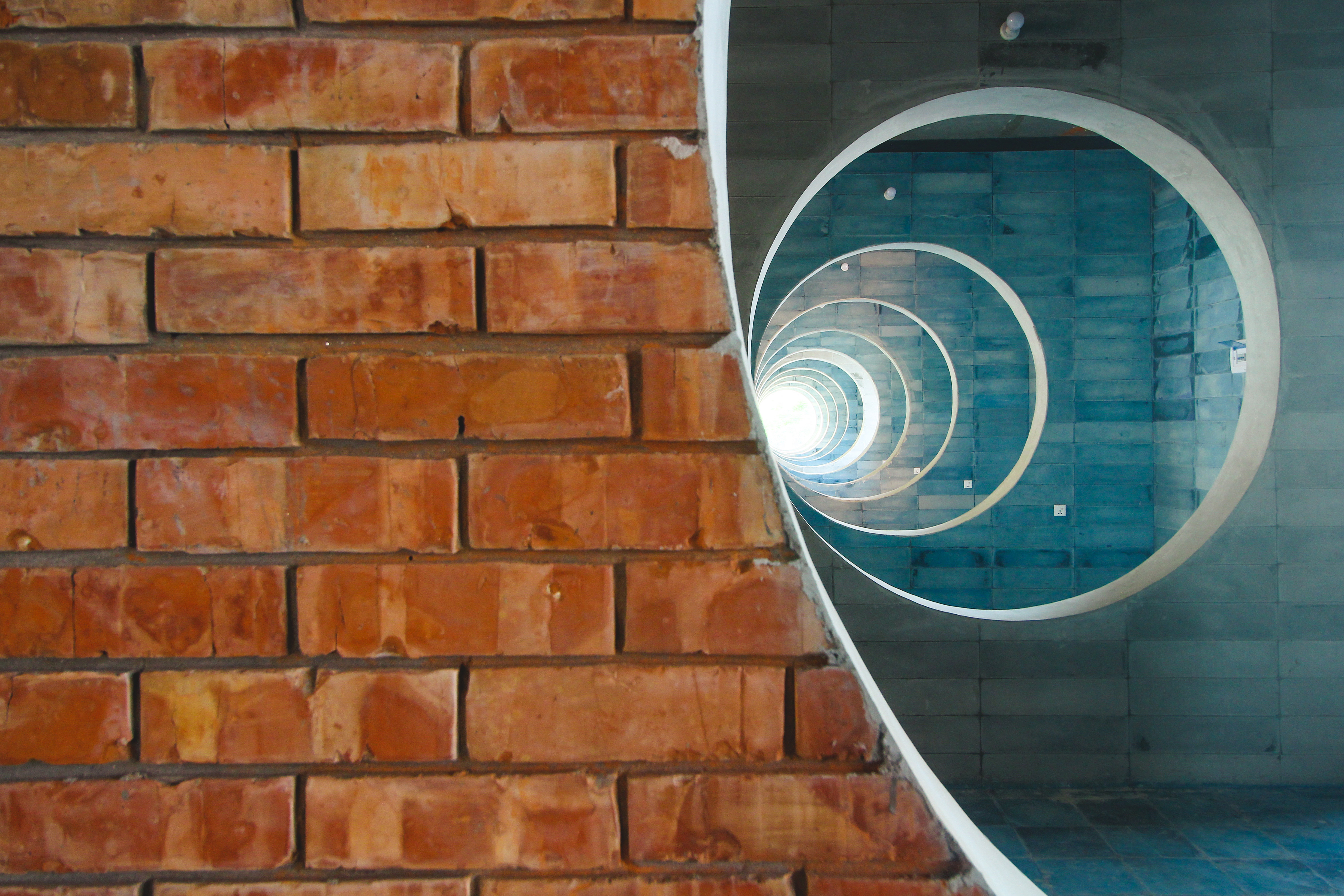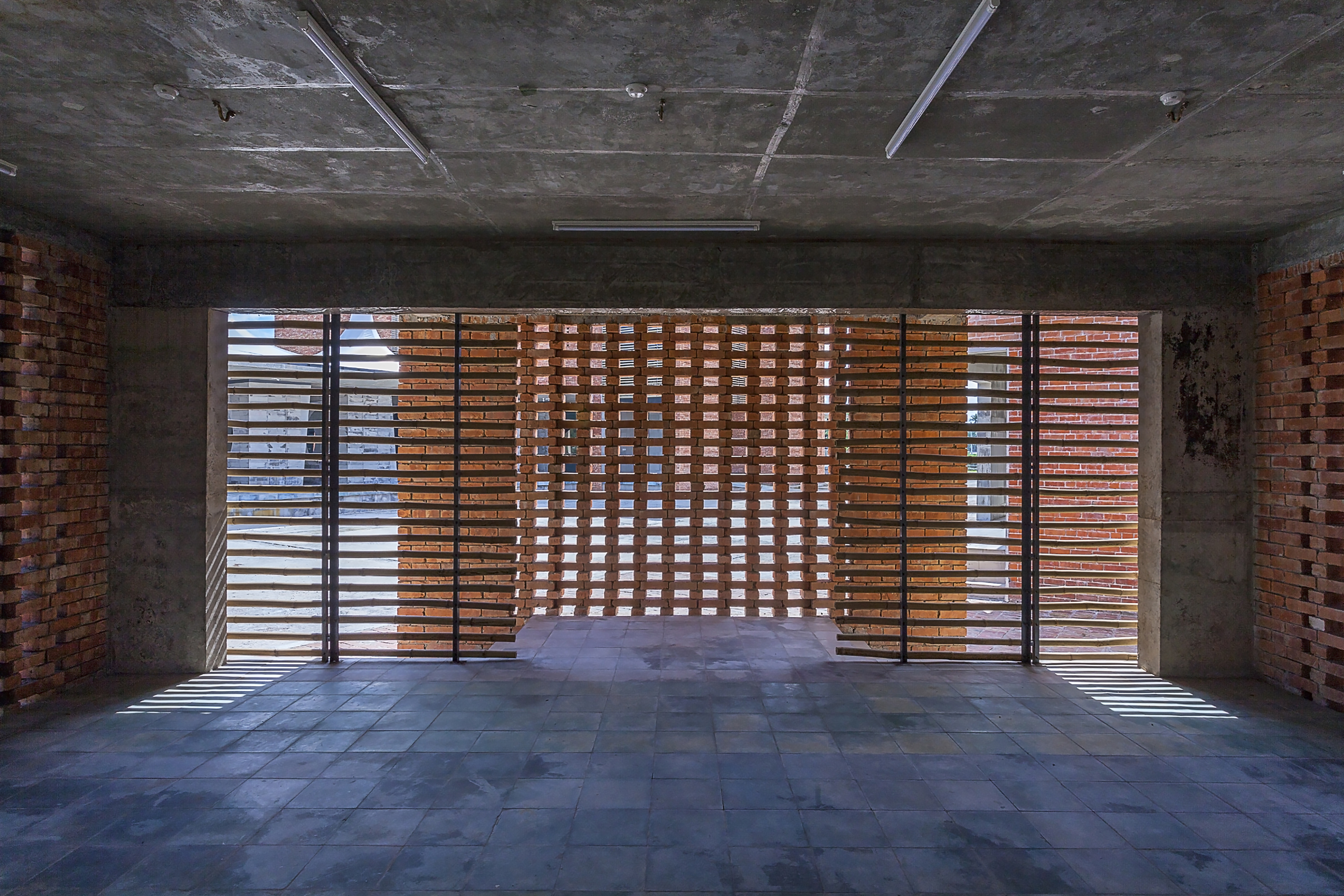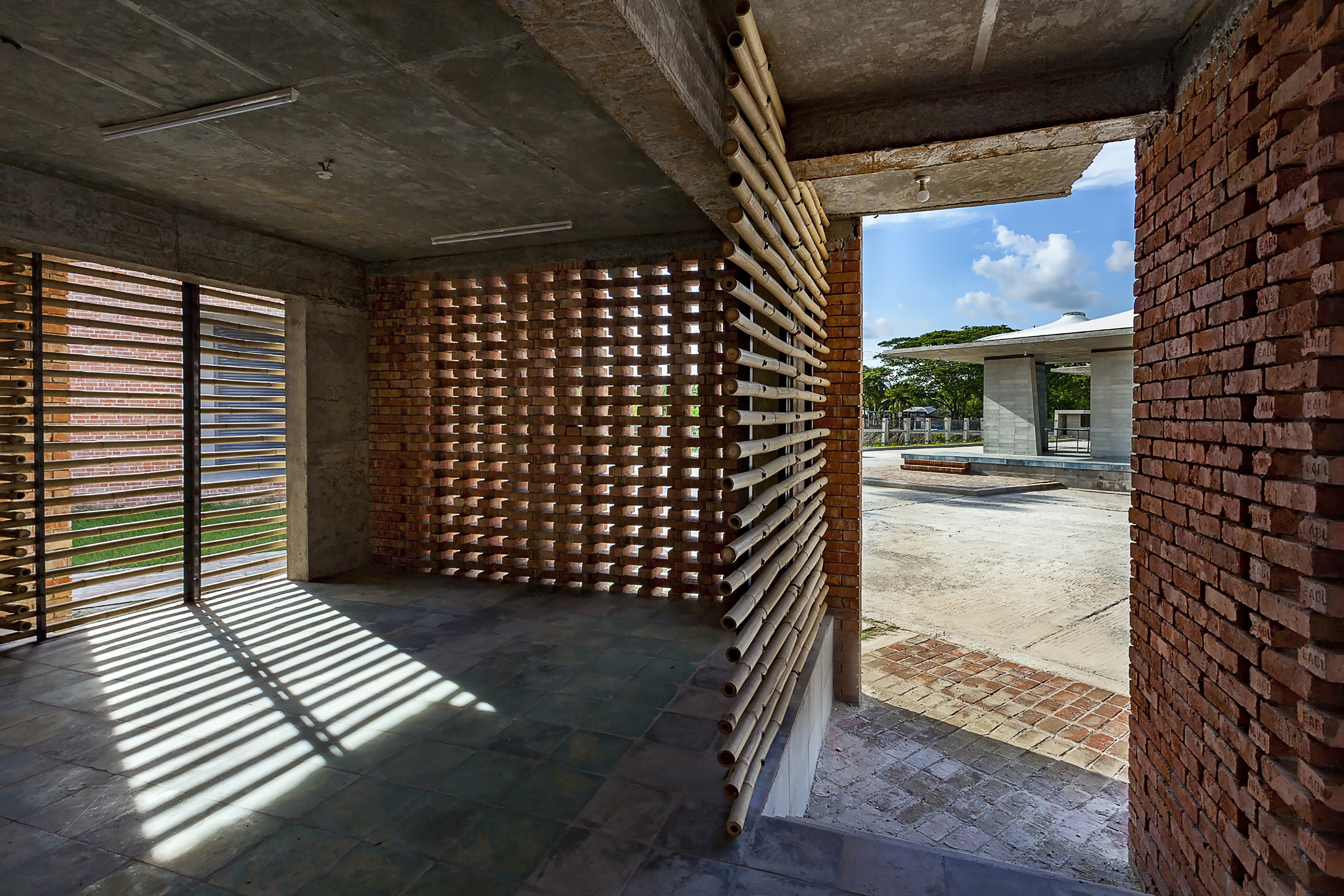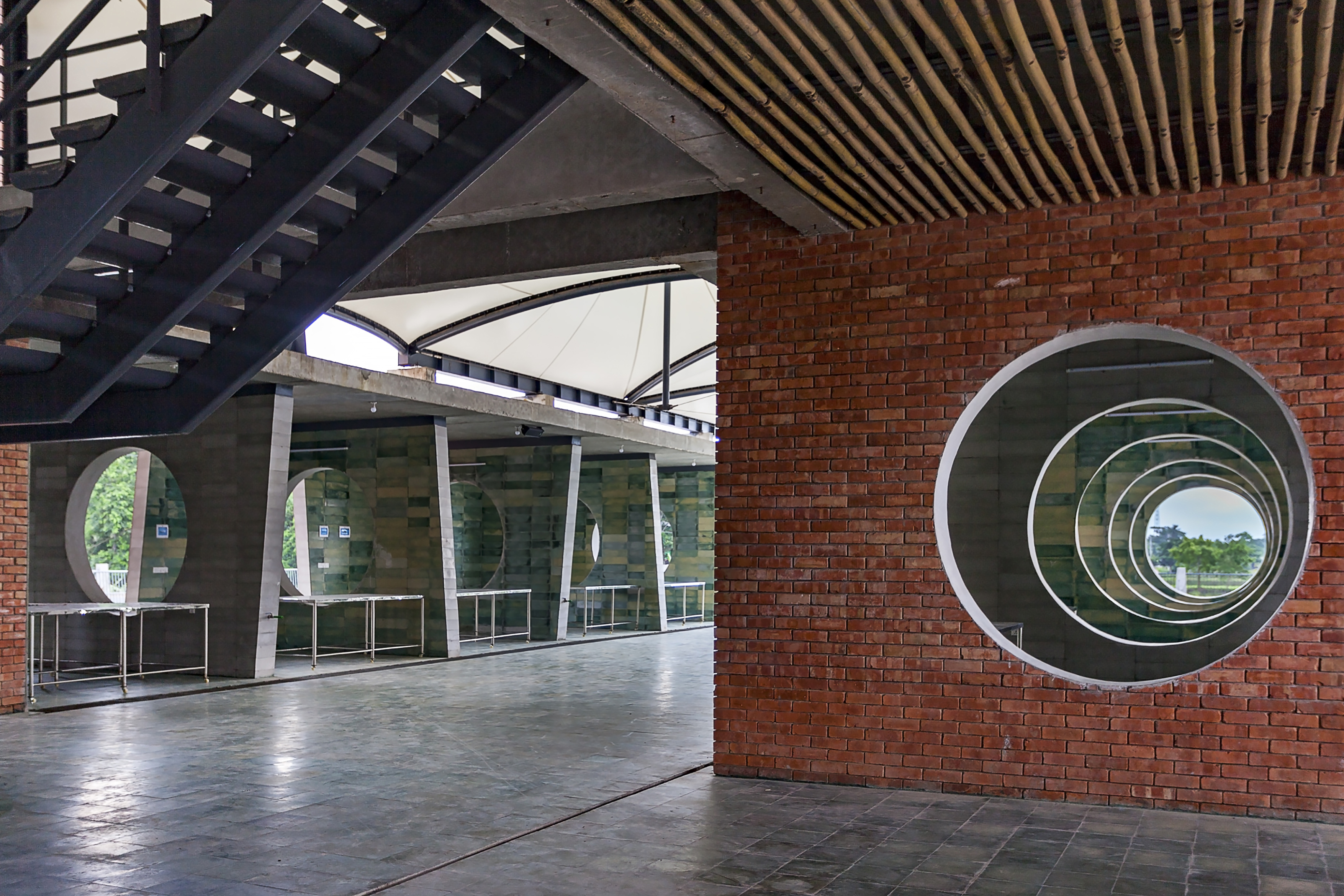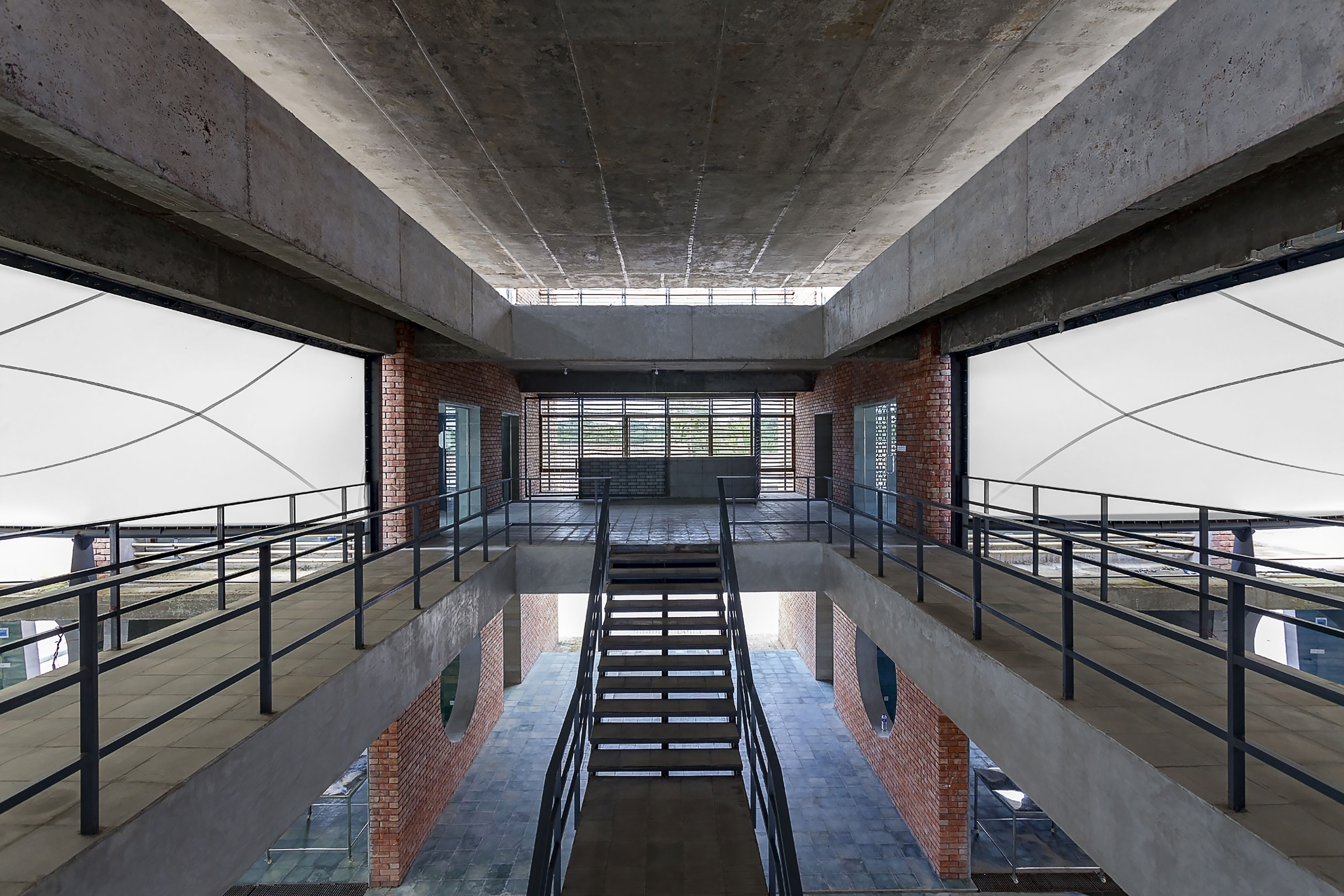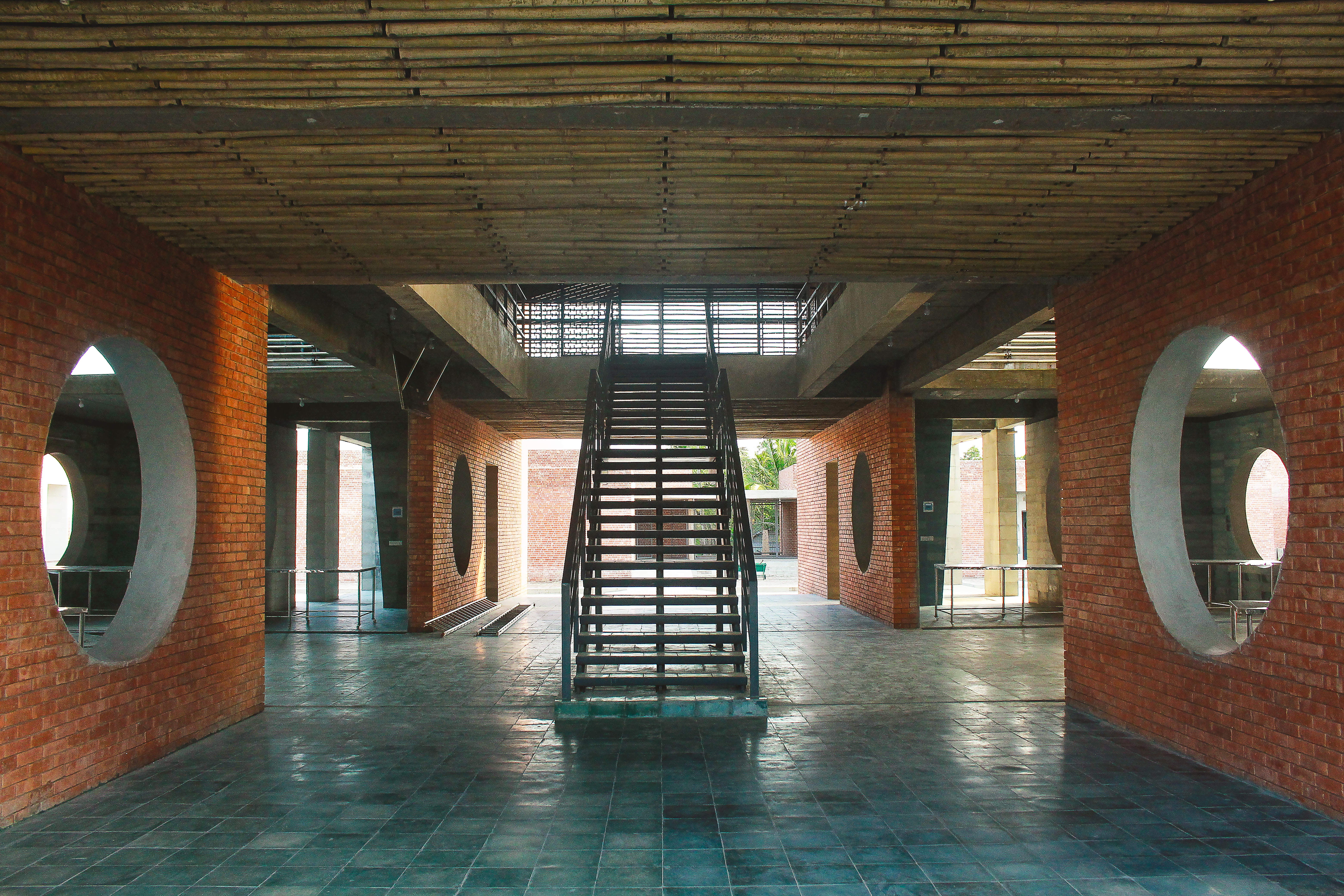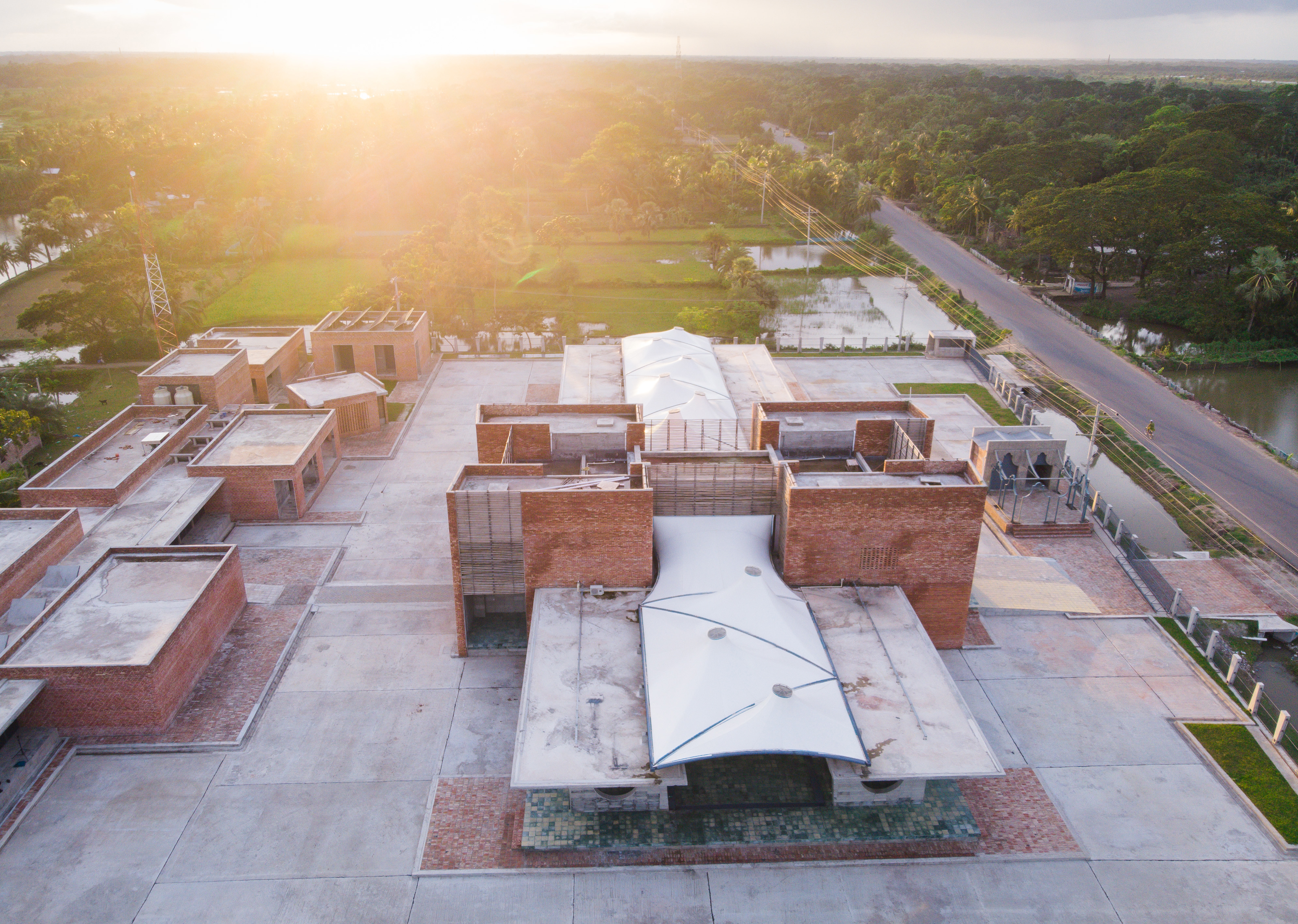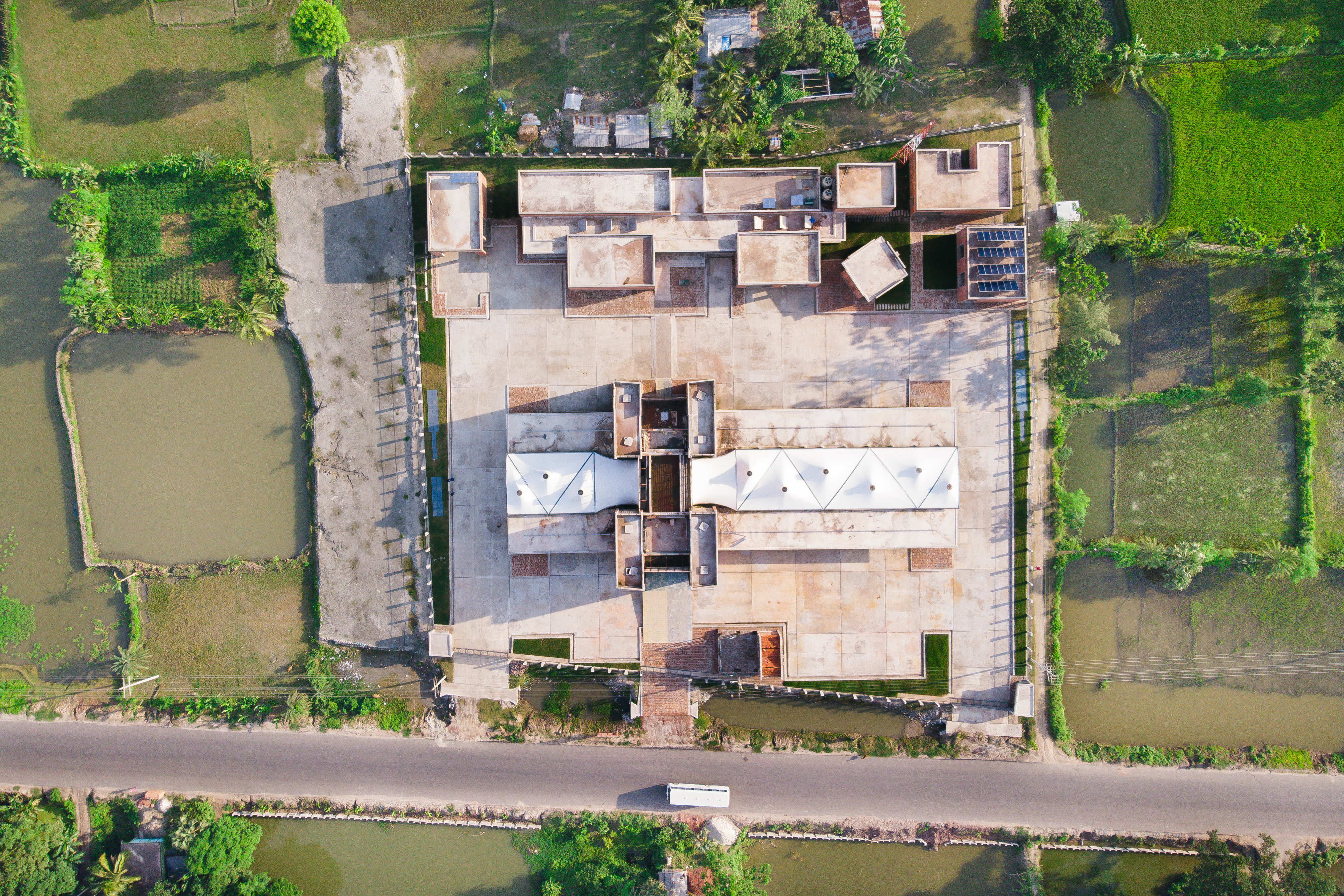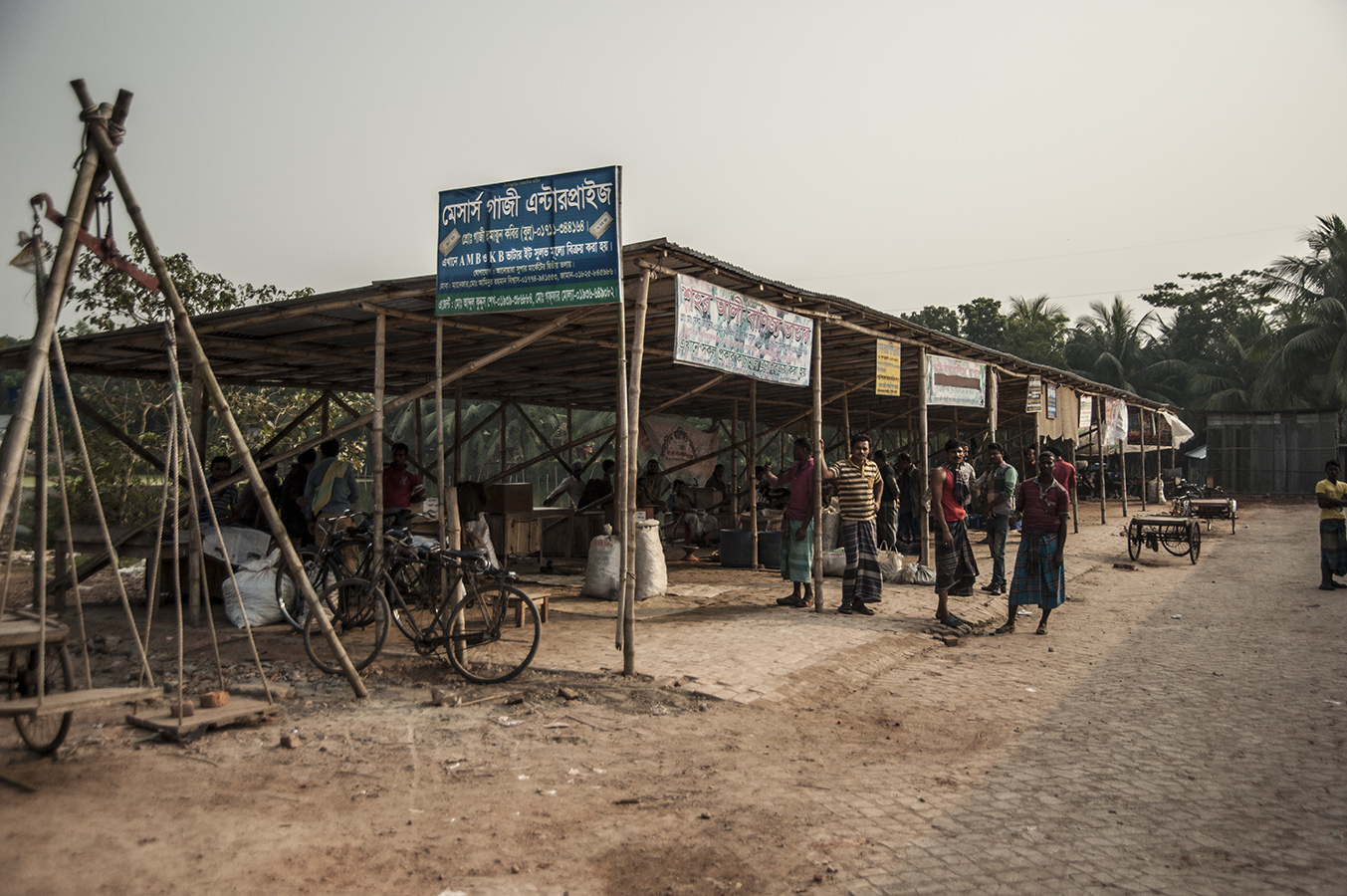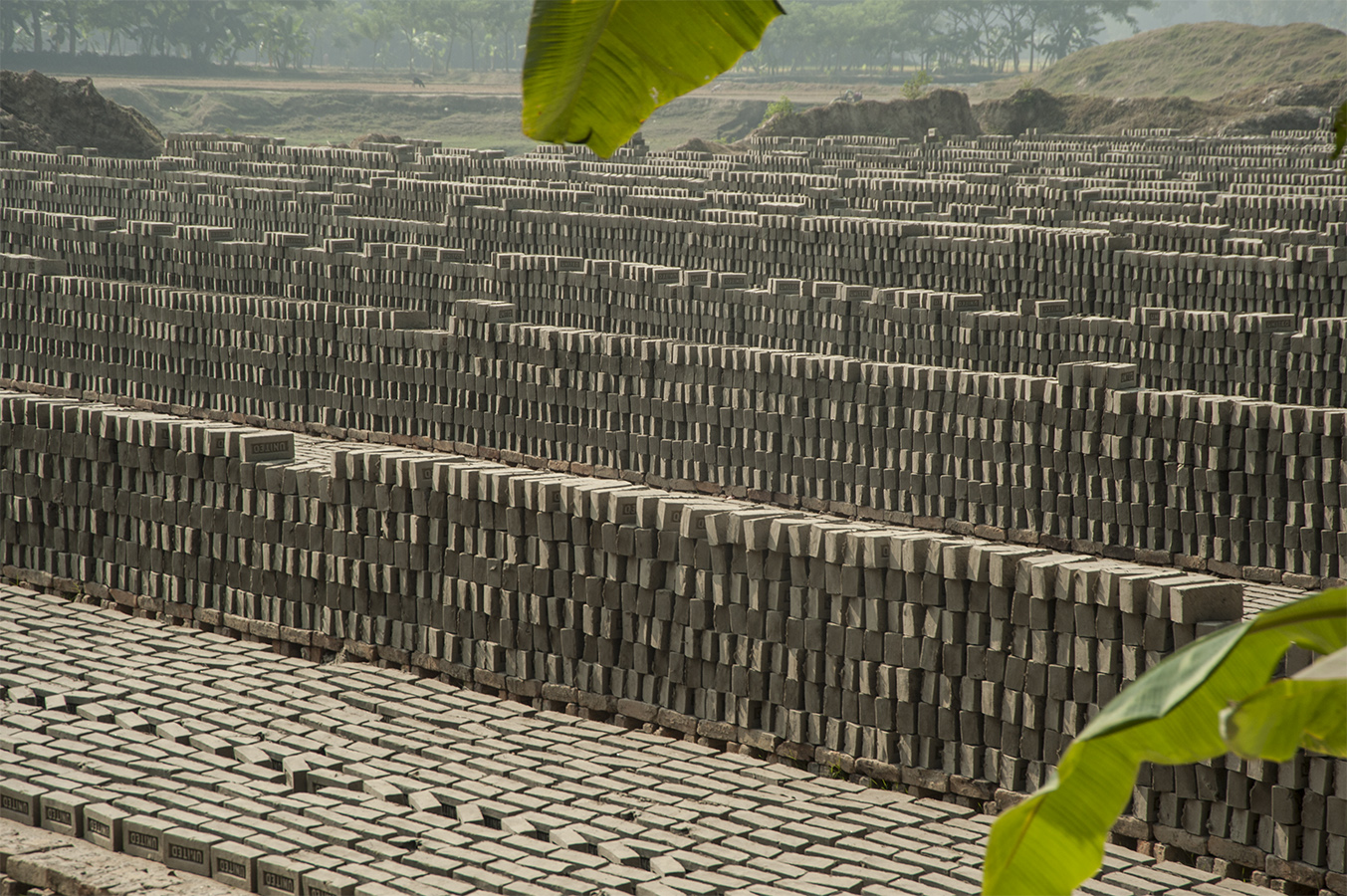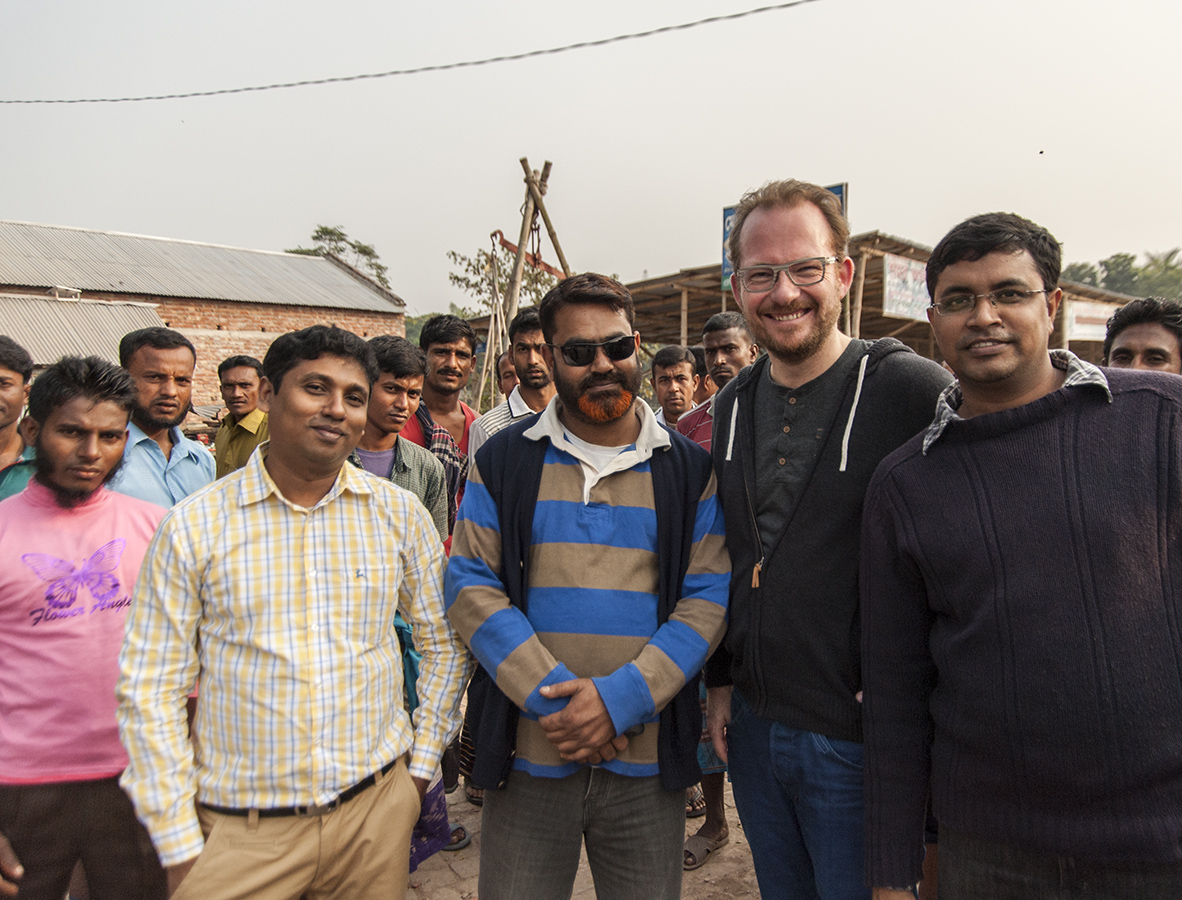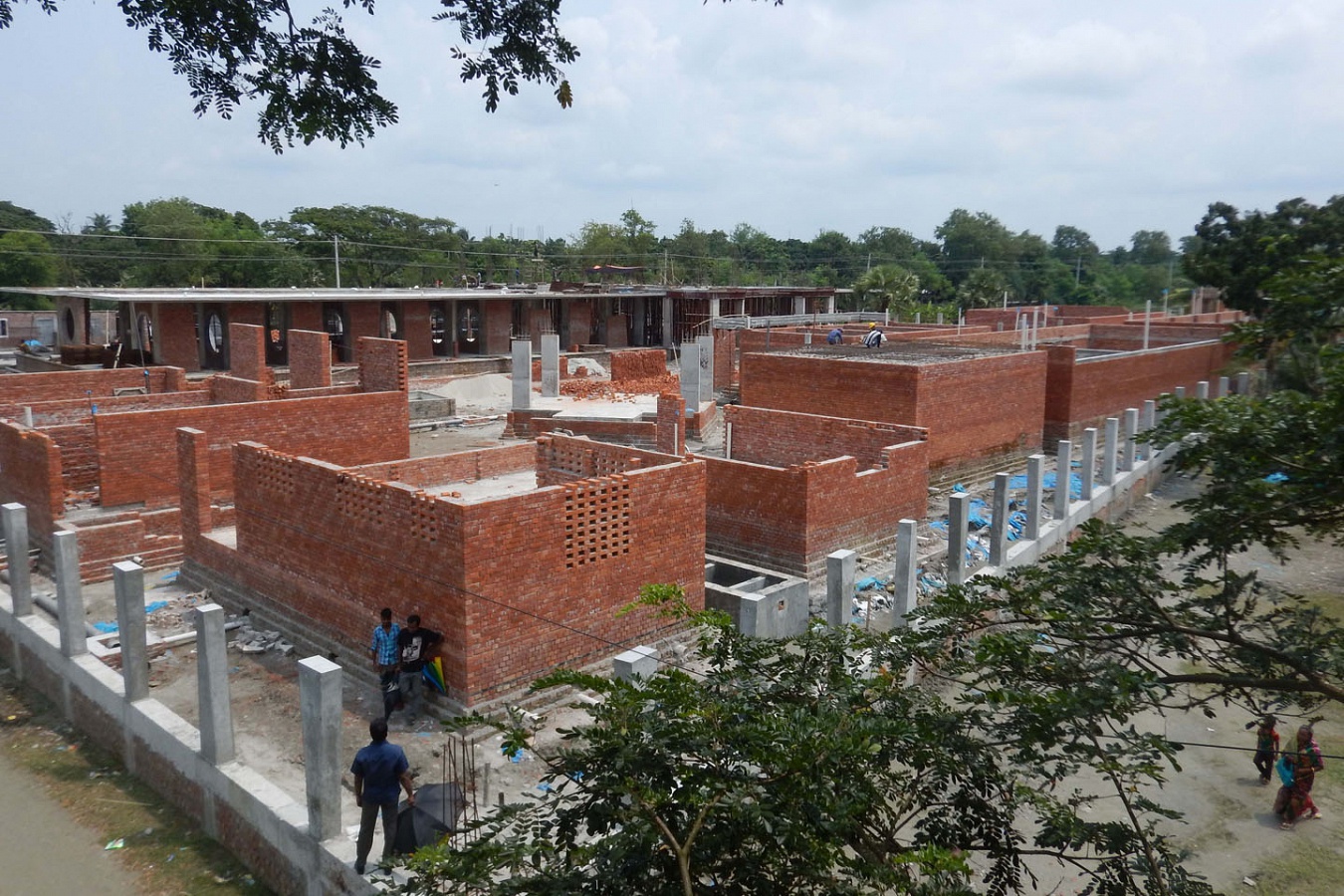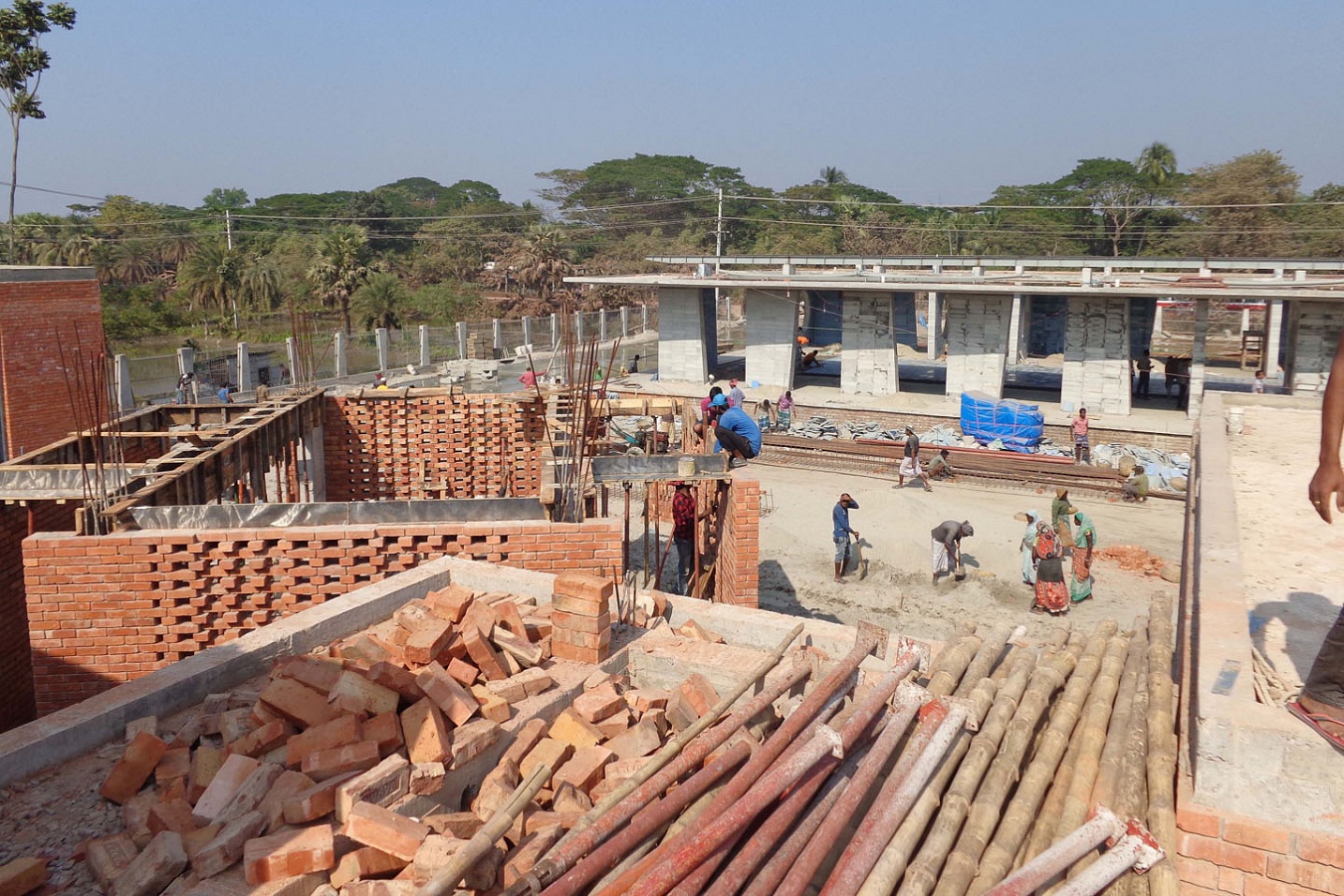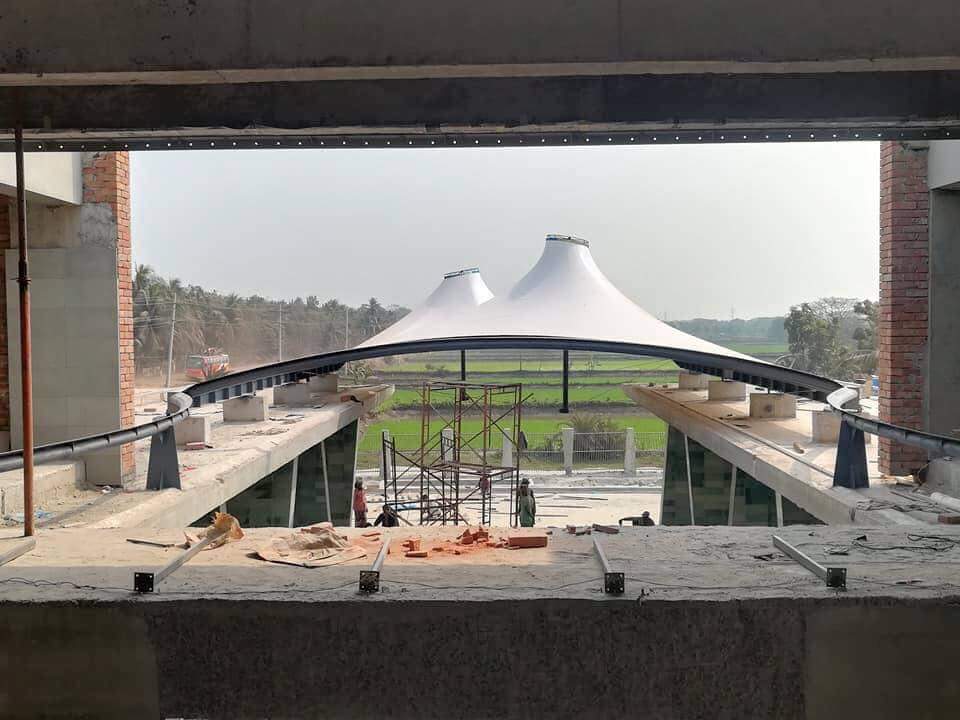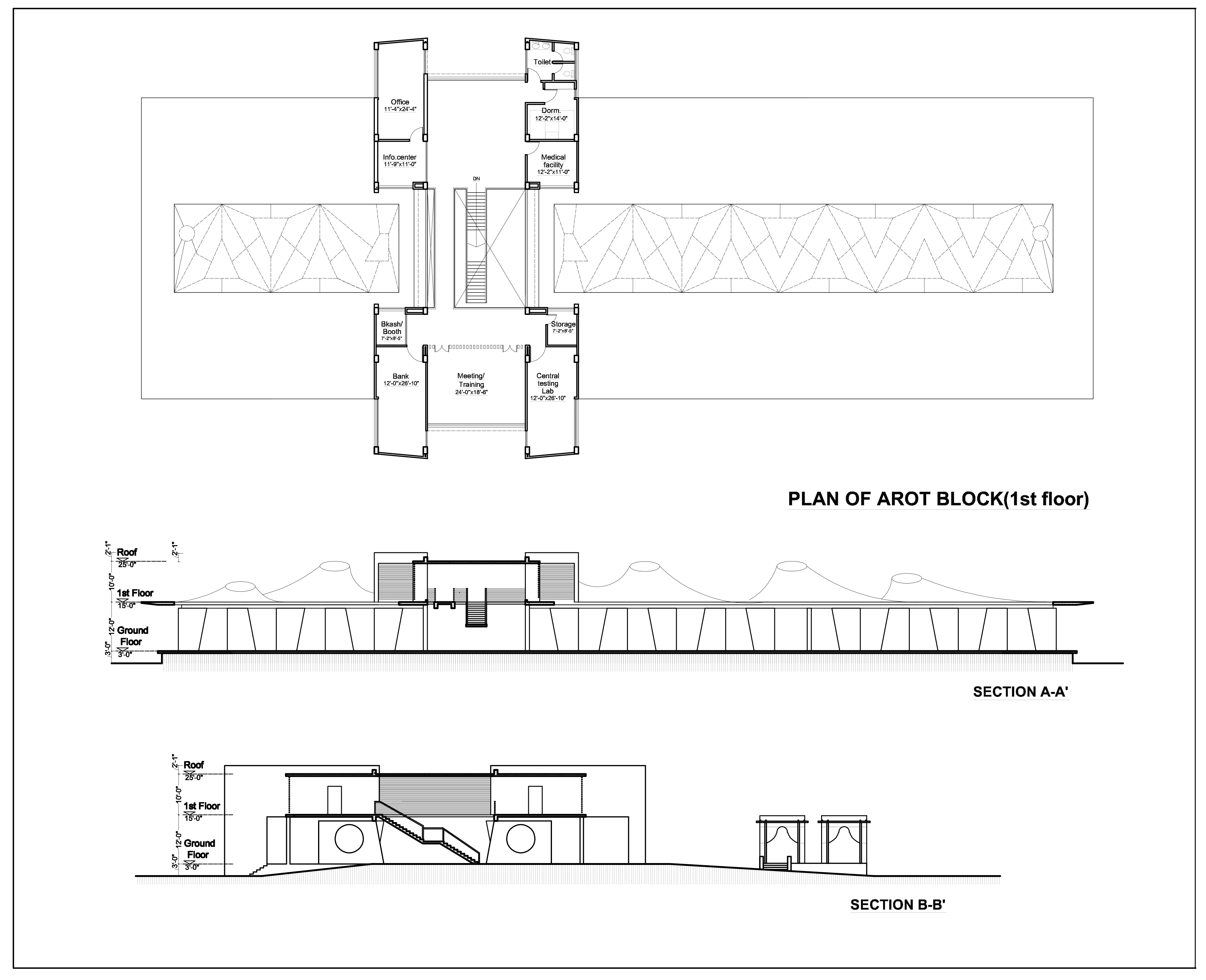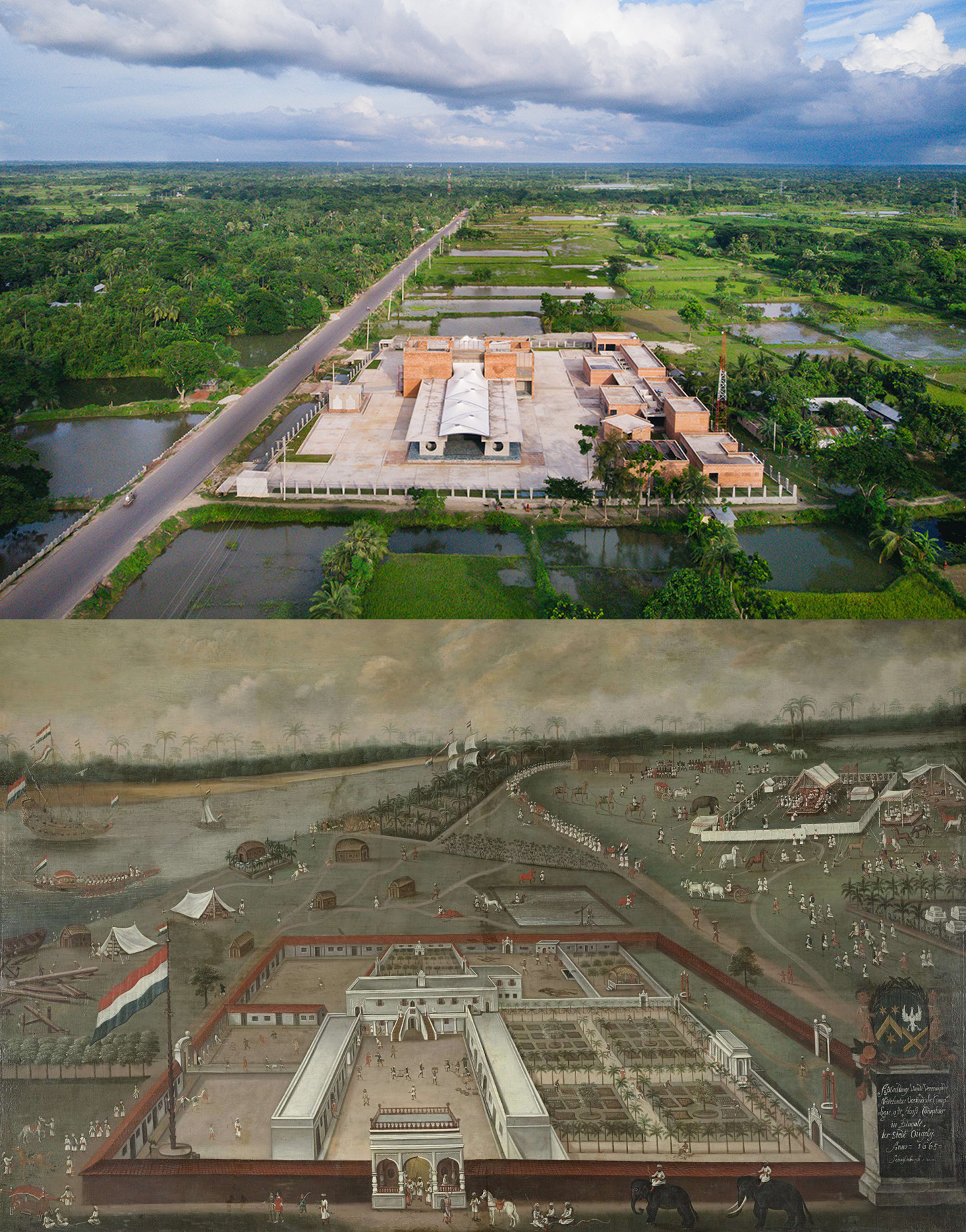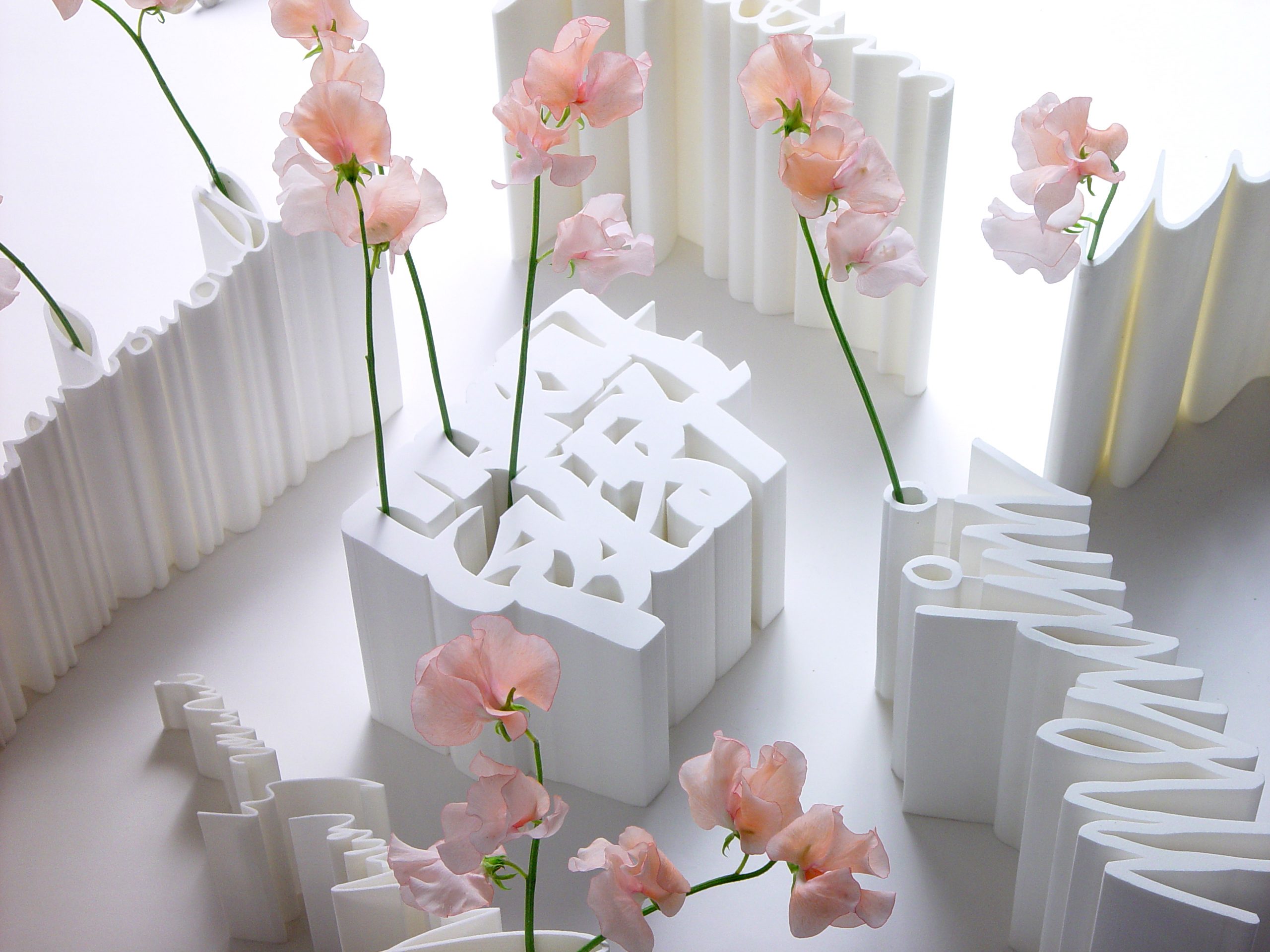“You have designed a building of unprecedented beauty, the open character, the colors, the architecture, made with so much craftsmanship and love, for me, all of this expresses the dignity of being a farmer.”
Nico Roozen – Founder of Solidaridad
Amsterdam, 25 Sept 2018
Amsterdam based design office Tjep. teams up with Bengladeshi based Vaastukalpa Architects to develop and build advanced market infrastructures in rural Bangladesh, a commission from the Solidaridad network. . Frank Tjepkema (Tjep.), acclaimed Amsterdam-based designer, reveals a partnership with development organization Solidaridad Network in helping Bangladesh villages modernize their infrastructure by designing Village Super Markets -modern markets that integrate traditional stalls with modern teaching, education and community facilities. The first of these Village Super Markets have been unveiled in the district of Khulna in the summer of 2018, with a second one opening soon after in the fall of 2018 in Jessore. Solidaridad VSM is a collaborative effort together with reputed architectural consultancy firm Vaastukalpa Architects Ltd. from Bangladesh.
Amsterdam based design office Tjep. teams up with Bengladeshi based Vaastukalpa Architects to develop and build advanced market infrastructures in rural Bangladesh, a commission from the Solidaridad network. . Frank Tjepkema (Tjep.), acclaimed Amsterdam-based designer, reveals a partnership with development organization Solidaridad Network in helping Bangladesh villages modernize their infrastructure by designing Village Super Markets -modern markets that integrate traditional stalls with modern teaching, education and community facilities. The first of these Village Super Markets have been unveiled in the district of Khulna in the summer of 2018, with a second one opening soon after in the fall of 2018 in Jessore. Solidaridad VSM is a collaborative effort together with reputed architectural consultancy firm Vaastukalpa Architects Ltd. from Bangladesh.
“Creating a place that builds social cohesion, encourages education, respects religious beliefs.”
‘This project appealed to me because of the challenge of uniting not only the modern and the traditional, but of incorporating many aspects that had nothing to do with market trade -of creating a place that builds social cohesion, encourages education, respects religious beliefs, creates something of communal pride and -a request from locals that actually surprised me -add a distinctive ‘Dutchness’ to celebrate this partnership between Khulna builders, architects and Solidaridad.’ Said Frank Tjepkema, owner and creative director of Tjep.
Nazimuddin Payel, the Principal Architect of Vaastukalpa Architects Ltd. shares his experience, ‘We were very excited to work for the village farmers as well as working with such a reputed designer like Tjep. I can remember when we first met Tjep at Bangladesh, he was very much inspired by the architectural richness of Bengal and that was very inspiring for us too. We took the challenge to deal with many inherent dualities of the project not only in its functions but in the different culture of Bengal and Dutch as well.’
An outcome of the SAFAL initiative (Sustainable Agriculture, Food Security and Linkages), run in partnership with the Embassy of the Kingdom of The Netherlands in Bangladesh, the goal is to help raise productivity, quality of life, and raise income for smallholder farmers and disadvantaged workers and women. The SAFAL program focuses on the rural communities of Bagherhat, Khulna, Jessore, Satkhira and Narial, creating new social-marketplaces for thousands of small traders, families, and producers. One of the problems Bangladesh faces is in meeting modern international food standards, which limits the ability for smallholders to sell their produce to wholesalers. The function of providing a modern market environment is essential: direct commerce equals direct, fair, trade and a better life for local farmers.
International Program Coordinator Aquaculture at Solidaridad Daniel Knoop was responsible for contacting Frank and stated ‘I first came across Frank Tjepkema when he created this stand-out sustainable farming-entertainment concept ‘Oogst’ -I was intrigued how a designer approached topics like agricultural development and sustainable economics from a completely fresh angle.’
Frank Tjepkema worked closely with Bangladeshi architect Nazimuddin Payel Principal of Vaastukalpa and Amsterdam-based architect Rob van Houten (o4rb) in the conceptual development process. Vaastukalpa was responsible for the further technical development and the guidance of local builders and artisans to create the first VSM markets in Khulna and Jessore. On several research trips Tjepkema identified the core elements to help anchor the new concept, in particular the traditional ‘Arots’, small wooden huts used by market traders. ‘In my first visits to Bangladesh I was struck by de livelihood and dynamics in the markets on the one hand and the traditional craftsmanship and building quality found in ancient local mosques and Hindu temples on the other. The task at hand was to respect and mix the market dynamics with outstanding architecture and a flair of Dutch pragmatism. The market is organized along three main functions: the market function along one axes (horticulture and aquaculture), the facilitating of social and educational functions for the local farmers along the other axes (retail and information center) and finally the surrounding Tech Village where food is processed and cooled using state of the art hardware.’
“I was struck by de livelihood and dynamics in the markets.”
Architecture at the service of farmers
Nazimuddin Payel describes the project as a symphony of deliberately juxtaposed duos: ‘The traditional pavilion (which expedite the form of contextual bazar) enclave by the technology; The Dutch clock gable intermingled with Bengali motifs on red bricks; the symbolic city of trade floor- buttressed by the tech village behind.
Rob van Houten continues: ‘The overall socio-economic impact of the market required a flexible strategy with a distinct social emphasis. The total complex works like a village, with communal functions organised around a pedestrian spine, accessible for all visitors, farmers and merchants alike.’
In numbers
Total site area: 8,476 sqm (2 Acre)
Total build area:
Arot (Ground Floor): 1637 sqm
1st Floor of Central building: 385 sqm
Tech village: 1210 sqm
Tea stall: 68 sqm
Total: 3,300 sqm
Road & Parking area: (2785+786)= 3,571 sqm
Brick:
Foundation work: 3,29,000 nos.
Non exposed : 94,000 nos.
Exposed (Pattern): 2,17,000 nos.
Fancy Brick: 60,000 nos.
Pedestrian flat brick: 25,000 nos.
Concrete: 3,000 Cum
Bamboo: 3,000 Rm
Maruf Hossain (senior architect at Vaastakulpa) said: ‘At the conceptualization stage of VSM we went for a very simple and functional approach coherent with the traditional Bazar (market). But later on the challenges were of many folds-firstly huge technical details to run the project smoothly with all new technologies, secondly the customization of materials and thirdly the execution of those in a very specific customized manner based on the design principles we developed at the initial concept formation stage. When all these things came into reality; it’s really a very delightful experience.’
Occupying a total area of 6871 sqm Frank Tjepkema wanted to ensure traditional artisanal skills were highlighted, ‘I wanted the ancient skill of red brick making to be featured proudly, using traditional techniques of delta-sourced red-kiln production combined with locally sourced bamboo. The result is an outstanding testament to the beauty of these long-established but often underused regional techniques.’
An
incredible
journey
Striking visual comparison between our recently delivered Solidaridad Village Market in Bangladesh and the Dutch Hooghly trade outpost of the VOC also in East Bengal (painting dated 1665). Luckily this new complex is owned by the local agricultural cooperative and is a symbol of fair trade, local crafts and sustainable food production, rather than imperialism!
